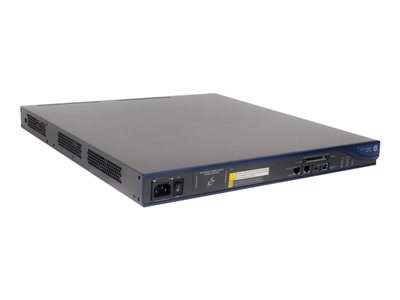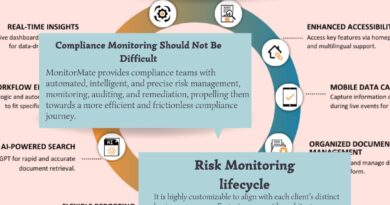Network Security Firewalls: Essential for IT Protection
In today’s rapidly evolving digital landscape, protecting networks and systems from security threats has never been more critical. The growing reliance on computer hardware and IT infrastructure, coupled with the increasing sophistication of cyberattacks, calls for stronger security solutions. At the core of any reliable network security strategy is the network security firewall.
A network security firewall acts as a gatekeeper, monitoring and controlling the flow of data between trusted internal networks and untrusted external networks, such as the internet. In this guest post, we’ll explore what network security firewalls are, how they function, and why they’re crucial to safeguarding IT hardware, especially in the realm of networking and technology.
What is a Network Security Firewall?
A network security firewall is a security system that filters incoming and outgoing traffic based on predefined security rules. It establishes a barrier between internal, trusted networks and untrusted networks. Firewalls can be hardware-based, software-based, or a combination of both, making them versatile for various IT setups. They protect computer hardware and networks from unauthorized access, malware, and other cyber threats.
In an age where businesses heavily depend on IT hardware and Networking solutions, firewalls are pivotal in preventing data breaches and network attacks. Their integration into modern systems allows for secure communication while mitigating the risks of security vulnerabilities.
How Do Firewalls Work?
Firewalls operate by analyzing traffic that enters or leaves a network. Depending on the type of firewall, it may use different techniques to filter traffic:
- Packet filtering: This method inspects packets of data and permits or blocks them based on pre-established rules.
- Proxy service: This firewall acts as an intermediary, fetching data from the internet and sending it to the requesting system.
- Stateful inspection: This advanced technique keeps track of the state of active connections and makes decisions based on the context of the traffic.
- Next-Generation Firewalls (NGFW): These are more advanced, combining traditional firewall capabilities with additional functionalities like encrypted traffic inspection and intrusion prevention systems (IPS).
The complexity and level of security provided by firewalls depend on their type and how they’re configured. In businesses handling sensitive information, Network Security Firewall are configured to restrict unauthorized access and prevent potential data breaches. Whether a firewall is software or hardware-based, its core functionality remains the same: to block unauthorized access while allowing legitimate communication.
Types of Firewalls
Firewalls come in different types, each suited for specific use cases:
- Hardware Firewalls
- Installed as physical devices, hardware firewalls are often used to protect larger network environments. They serve as a protective barrier for all devices within a network and are common in larger organizations that manage extensive IT infrastructures.
- Software Firewalls
- Installed on individual computers or servers, these firewalls monitor traffic on a single device. While easier to configure, software firewalls may consume system resources and may not offer the same level of protection as their hardware counterparts.
- Cloud-Based Firewalls
- Cloud-based firewalls, also known as firewall-as-a-service (FaaS), are hosted in the cloud and provide firewall protection to networks without the need for physical hardware.
- Next-Generation Firewalls (NGFW)
- These firewalls combine traditional firewall features with additional security functions such as deep packet inspection, application-level inspection, and intrusion prevention systems. NGFWs are designed to offer enhanced protection, addressing modern threats in networking environments.
Importance of Firewalls in IT Hardware
Firewalls serve as a crucial line of defense in protecting IT hardware from external threats. With the growing sophistication of cyberattacks, a robust firewall can prevent hackers from gaining unauthorized access to critical systems and data.
For businesses reliant on computer hardware and Networking equipment, investing in reliable firewall solutions is a necessity. A firewall can defend against malicious attacks that seek to exploit vulnerabilities in IT infrastructure. From protecting sensitive data on servers to ensuring safe communication across networks, firewalls play a pivotal role in maintaining a secure IT environment.
The Role of Firewalls in Modern Networking
Modern networks are more complex than ever, with the rise of cloud computing, remote work, and mobile devices accessing corporate networks. Firewalls have adapted to these changes by offering enhanced features that go beyond traditional packet filtering. For example, NGFWs provide protection against sophisticated threats like advanced malware, application-layer attacks, and encrypted threats.
In today’s technology landscape, where businesses and individuals are more connected than ever, firewalls help manage the intricate security requirements of modern IT systems. This extends to environments that use Internet of Things (IoT) devices, which can introduce new vulnerabilities if not properly secured.
How to Choose the Right Firewall for Your Business
When selecting a firewall, businesses must consider several factors to ensure that it meets their needs:
- Network Size and Complexity: For smaller networks, a software firewall may suffice, while larger organizations may need hardware or NGFW solutions to manage more significant traffic loads.
- Budget: While more advanced firewalls offer increased security, they also come with higher costs. It’s important to balance security needs with available resources.
- Specific Threats: Some businesses may require firewalls that specialize in preventing certain types of attacks, such as Distributed Denial of Service (DDoS) or Advanced Persistent Threats (APTs).
- Integration with Other Systems: Businesses must ensure that their firewall integrates seamlessly with other security systems, such as intrusion detection systems (IDS) or endpoint security.
Conclusion:
In conclusion, network security firewalls are a cornerstone of IT security, ensuring that computer hardware and networks are protected from unauthorized access, malware, and other cyber threats. With the rapid pace of technological advancement and increasing connectivity, firewalls are more important than ever in safeguarding sensitive data and maintaining the integrity of networking environments.
For businesses relying on Technology to drive their operations, a comprehensive firewall solution is a vital investment. By carefully selecting the right firewall and integrating it with other security measures, companies can ensure that they stay ahead of evolving cyber threats, keeping their IT infrastructure secure.
Firewalls are no longer just optional additions to a company’s security strategy; they are a necessity in today’s interconnected world, providing robust protection to businesses of all sizes.




